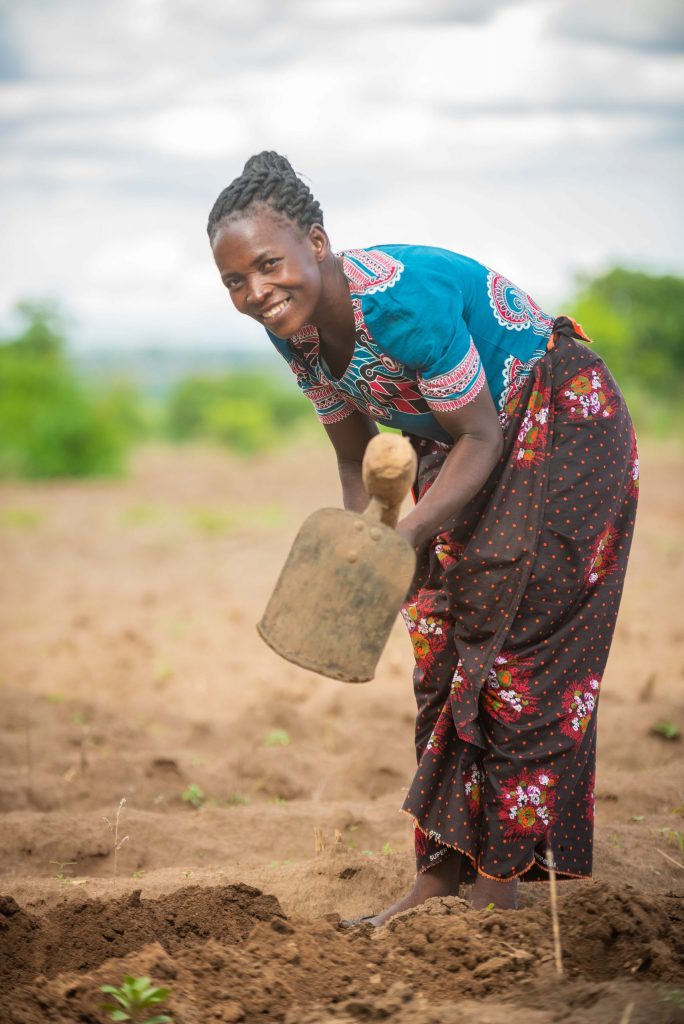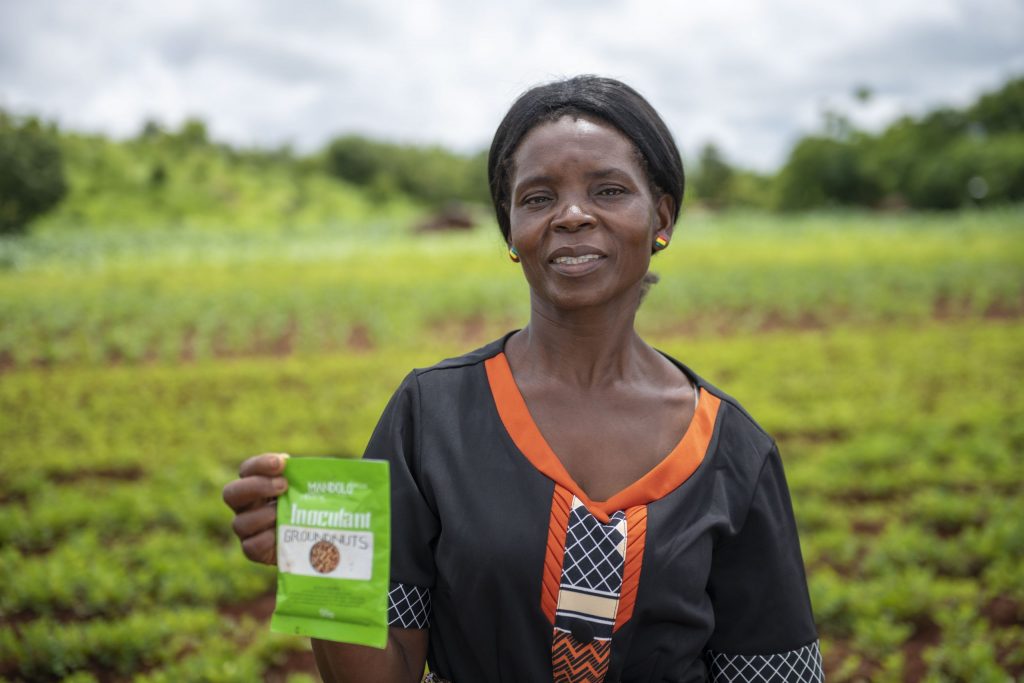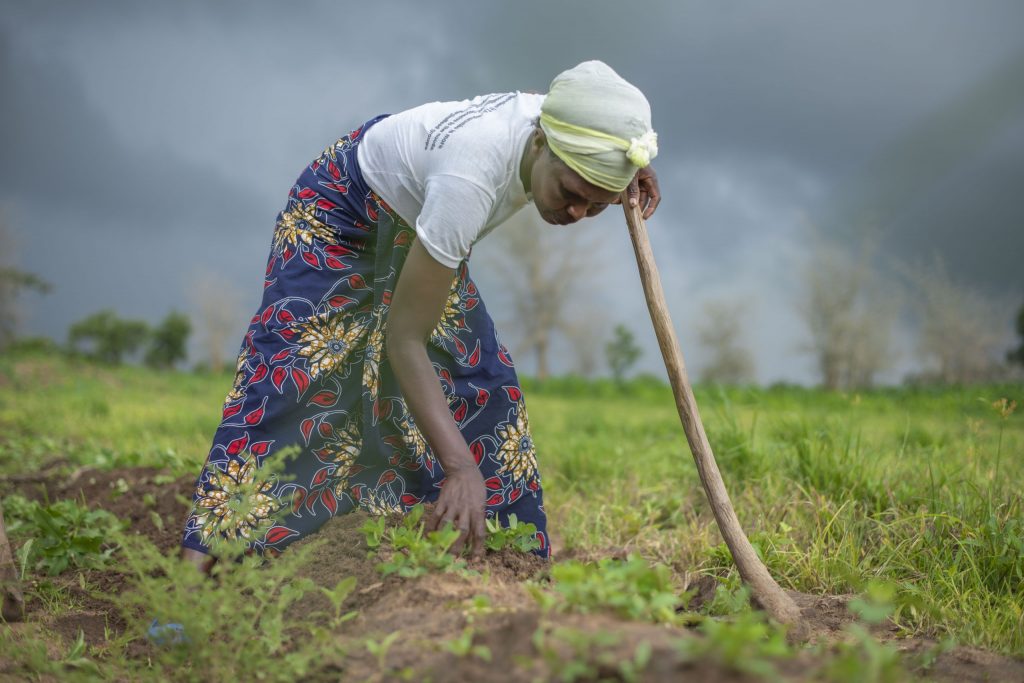
Access to reliable data and market information is a critical tool in the drive to make Africa’s rural economies more equitable and sustainable, according to a panel discussion hosted by UN Women and Standard Bank.
Through their Climate Smart Agriculture programme, UN Women and Standard Bank are equipping women farmers in Africa with the skills and resources needed to grow their operations and succeed in a changing climate. In January 2019, the organisations partnered with the aim of empowering more than 50,000 women farmers in Malawi, Uganda, Nigeria and South Africa through modern and environmentally friendly farming technologies that increase yields and incomes across the value chain.
Alongside access to quality farmlands and other challenges, access to information has been identified as one of the biggest barriers to Africa’s small-scale women farmers – particularly information and data on yields, soil health, weather patterns, good farming practices, seasonality, market proximity, and market prices.

This information gap makes it more difficult for many women farmers to achieve healthy selling prices, and to access financial services products.
“We have been greatly privileged to learn from the farmers groups about the challenges and opportunities that exist in their space,” Graham Chipande, Head of Relationship Banking at Standard Bank Malawi, said in the online panel discussion held on Wednesday.
With the African Continental Free-trade Area now operational, new opportunities will begin to emerge in the sector, including in agri-processing.
“By better equipping women farmers to understand consumer patterns, they stand a much better chance of being able to innovate and rise to the demand,” Chipande said. “We are working to bring farmers closer to the end consumer by removing information barriers in the value chain.”
While the COVID-19 pandemic has created a new set of challenges for the project, digital technology is being used to conduct meetings where possible, and messages are being delivered via community radio stations, SMSs and marketing materials.

Nidhi Tandon, Socio-economic Advisor for the East and Southern Africa Region at UN Women, said in the panel discussion that Africa’s farmers are at the frontline of climate change, and this means interventions are needed to help them adopt more sustainable practices while also adapting to changing weather patterns.
This is why the project is providing them with access to drought-resistant seeds and more environmentally friendly fertilizers. COVID-19 has shown us that we are pushing the boundaries of our natural environments, Tandon said, and more must be done to restore and conserve biodiversity.
Further, climate change could impact women farmers more than men given that women tend to carry more household and other responsibilities. As a result, UN Women is launching similar initiatives in other markets and regions.
The project’s achievements to date

In Malawi, close to 6,000 women farmers have received support in the use of high-yield and drought-resistant groundnut seeds; the implementation of modern farming methods that conserve moisture and maximise land use; use of weather forecast information for the timely planting of groundnuts; use of market information and financial literacy sessions; and the adoption of modern farming technologies.
In Nigeria, the project is currently supporting 2,300 women beneficiary agri-business groups and cooperatives to increase the productivity and profitability of their operations within the rice and shea nut value chains. It will ultimately deliver assistance to 12,500 rural women in the country.
In Uganda, 1,400 women have been equipped with the skills and technologies needed to run successful aquaculture operations. Over a quarter of a million high-quality fish fingerlings – of the Tilapia species – are being grown by the beneficiaries, using aquaculture technologies. The women have been supported through technical training, mentorship programmes, access to inputs including feeds, accommodation and business management skills.
In South Africa, the project delivered agricultural inputs to 2,753 women farmers in the first half of 2020. The inputs include drought-resistant seeds of various crops, organic manure, farming equipment, and training on climate-smart agriculture.

Bonolo Maqeba, one of the project’s beneficiaries in South Africa who is also a farmer mentor, said the programme has helped her to significantly increase yields. She is now seeking to partner with other women on an agri-processing initiative.
The Climate Smart Agriculture project is closely aligned to the UN Sustainable Development Goals, particularly when it comes to gender equality, access to decent work, and economic growth. It is also in line with Standard Bank’s purpose – driving Africa’s growth.
UN Women focuses on supporting women in agriculture to fully and equally participate in decision-making at all levels as necessary for the development of: Appropriate policy interventions; deployment of more effective tools, technologies, infrastructure and institutions to implement measures to build resilience; and the achievement of sustainable resource management for resilient green value chains.
To ensure the success of the Climate Smart Agriculture initiative, Standard Bank has provided funding worth US$3 million as well as ongoing support through financial literacy and other capacity-building programmes. UN Women is responsible for full project development and management, technical support, coordination of partners, monitoring and evaluation, and reporting.

ENDS
Note to Editor
- About UN Women

UN Women is the United Nations’ Organization dedicated to gender Equality and Women Empowerment. Global Champion for women and girls, UN Women was established to accelerate progress on meeting their needs worldwide.
UN Women supports UN Member States as they set global standards for achieving gender equality, and works with governments and civil society to design laws, policies, programmes and services needed to implement these standards.
It stands behind women’s equal participation in all aspects of life, focusing on five priority areas: increasing women’s leadership and participation; ending violence against women; engaging women in all aspects of peace and security processes; enhancing women’s economic empowerment; and making gender equality central to national development planning and budgeting. UN Women also coordinates and promotes the UN system’s work in advancing gender equality.
The UN Women regional office for East and Southern Africa supports the Economic Empowerment of Women across 13 countries – all of which have different contexts, priorities and opportunities. The underpinning goal is to eradicate poverty, increase quality livelihood opportunities, and support women in their innovations, social enterprises, and capacities to secure social, economic and environmental assets and knowledge. The regional office has multiple roles in strengthening synergies and common agendas across the region; mobilizing and leveraging networks for resources and influence on behalf of women and their communities; and working closely with governments and civil society to tackle the immediate and long-term socio-economic toll of the COVID-19 pandemic.
- About CSA Programme
Working with women, youth and their communities to support women’s agency, influence and holistic contributions to sustainable farming methods contributes to securing local food supply, nutrition, income and livelihoods and renewable energy life cycles. The CSA platform provides an inter-disciplinary approach towards vibrant local rural economies, and UN WOMEN will continue to work towards the Sustainable Development Goals, the UN Decade for Family Farming and the UN Decade for Ecosystem Restoration
- About Standard Bank/Stanbic Bank

Standard Bank Group is the largest African bank by assets, operating in 20 African countries and 5 global financial centres. Standard Bank has a 157-year history in South Africa and started building a franchise outside southern Africa in the early 1990s.
Our strategic position, which enables us to connect Africa to other select emerging markets as well as pools of capital in developed markets, and our balanced portfolio of businesses, provide significant opportunities for growth. The group has over 50 000 employees, more than 1 100 branches and 9 000 ATMs on the African continent, which enable it to deliver a complete range of services across personal and business banking, corporate and investment banking and wealth management.
For further information, go to http://www.standardbank.com

